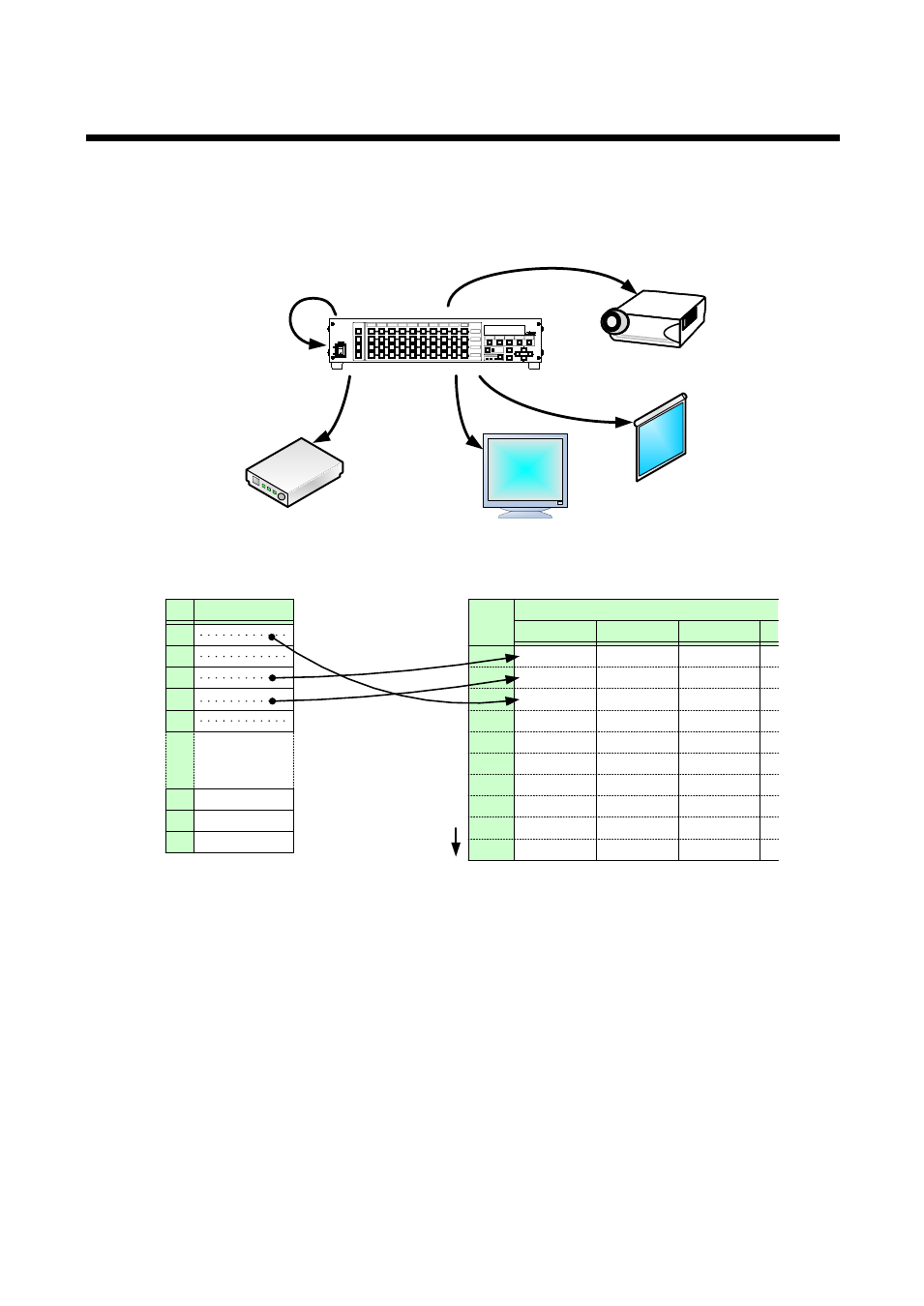12 control command settings, Control command settings – IDK MSD-54 Series User Manual
Page 154

MSD-54 SERIES User’s Guide
154
8.12 Control Command Settings
You can control peripheral devices (for example, turning ON/OFF projectors) using Serial, LAN, Tally output
or CEC. You can register up to 32 commands in the MSD. Associate registered commands with one of 98
operating conditions (for example, switching control command execution keys, COMMANDs A to I, and
switching video/audio). When execution conditions are met, the associated commands are performed
according to the set execution order. The loop back function allows you to control the commands of MSD
itself.
Projector: Power
ON/OFF etc.
LAN cable
Communication commands
Contact control
Screen: UP/DOWN etc.
Power amplifier:
Volume control etc..
RS-232C cable
Communication
commands
Internal loop back
Communication
commands
Channel switch etc..
MSD-5404
LCD monitor: Power
ON/OFF
HDMI cable
CEC control
DIGITAL
MSD-5404
MULTI
SWITCHER
OUT1
OUT2
OUT3
OUT4
IN1
IN3
IN4
IN5
IN6
IN7
IN8
IN9
OFF
POWER
DISPLAY
1
2
3
4
IN2
MENU/SET
ESC
COMMAND
E
COMMAND
COMMAND
COMMAND
COMMAND
A
B
C
D
V&A
VIDEO
AUDIO
SWITCHING MODE
PRESET LOAD
COMMAND
[Figure 8.47] Control command send function
Execution condition
1st
2nd
3rd
4th
5th
6th
7th
8th
9th
10th
COMMAND A
COMMAND B
COMMAND C
1
2
3
4
5
30
31
32
Control commands
Execution order
Associating
commands
COMMAND 1
COMMAND 3
COMMAND 4
COMMANDs 1 to 32
[Figure 8.48] Associating control commands
In order to control peripheral devices using a communication, select the correct mode as follows:
Serial: set “8.10.2 Operation mode“ to “TRANSMITTER”
LAN: set “8.11.4 Operation mode” to “TRANSMITTER”
Tally output: set “8.15.1 Assigning functions” to a control command output.
When a control command is executed, the user setting for the text of “MEMO” is displayed (Example 1), and if
the reply command is received, the “MEMO” text registered for the reply command is also displayed (Example
2) for one second (when the control command that is used for checking the reply command is executed).
The received data is displayed (Example 3) for two seconds (when the control command that is used for
displaying the received data is executed).
However, if you configure several control commands, or if you display data received from several com ports,
the display time may be shortened by one to two seconds while control commands are being successively
executed. If the received data does not fit in the full screen, the displayed data is scrolled.